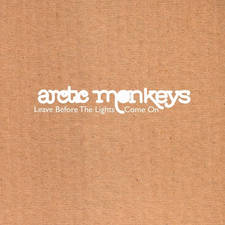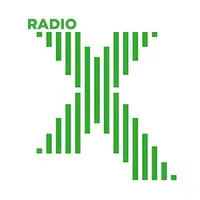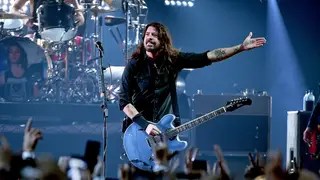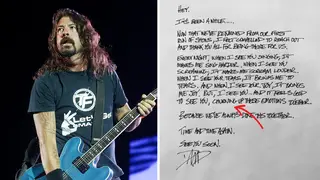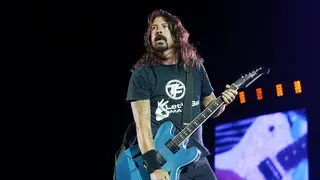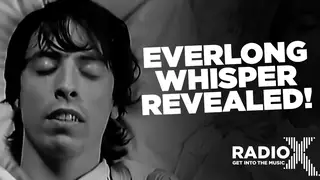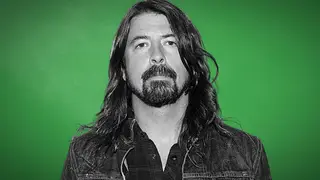How music saved Dave Grohl after the death of Kurt Cobain
17 June 2023, 11:00
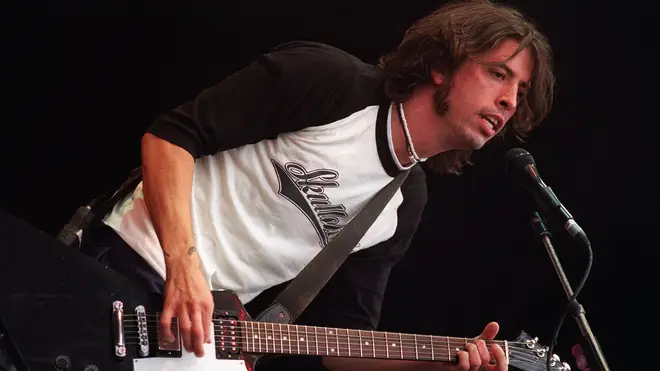
In 1995, the Foo Fighters frontman became known as much more than "Nirvana's drummer" and created triumph after a tragedy that shocked the world.
How does a band carry on after the frontman dies? Joy Division changed their name, ditched their old songs and reinvented themselves as New Order. Queen carried on with a new singer, but rolled out all the old hits. The Doors tried to pitch the other members as frontmen, to little success.
For Nirvana, the death of Kurt Cobain in April 1994 was a full stop. Nobody could replace Kurt and he was the creative force that took the band from obscure grunge act to arena-filling superstars. Who'd be interested in Nirvana without Kurt Cobain? But Dave Grohl proved the critics wrong.
Sadly, Grohl has been faced with another tragedy in the past year - following drummer Taylor Hawkins' death in March 2022 at the age of 50, the musician retreated to the studio to make the moving album But Here We Are. Foo Fighters are back on the road with Josh Freese in the drum seat, but the lyrics on the album tell a story of shock, disbelief, faith and resolution.
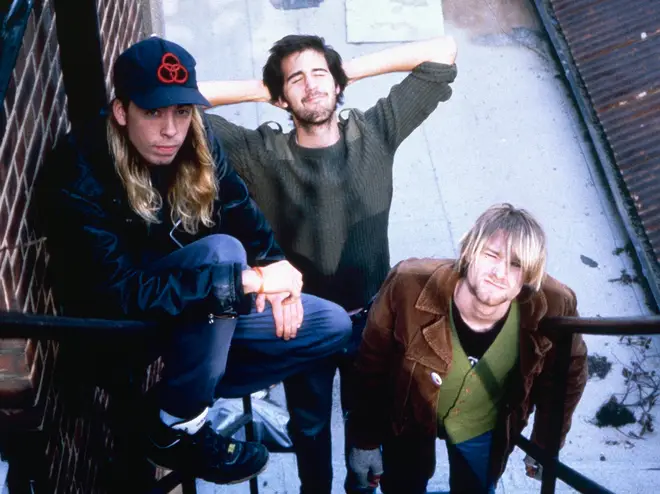
The final days of of NIrvana were a struggle for Dave Grohl and Krist Novoselic. Grohl told The Guardian in August 2019: "It was not a pleasant time for the band. Kurt was unwell. Then he was well. Then he was unwell. The last year of the band was tough..."
Nirvana's last tour was in Europe at the start of 1994. On 3rd March, Cobain was hospitalised after an overdose of painkillers. His struggle with addiction, depression, fatigue and illness had become serious - and his issues had a knock-on effect for his bandmates.
"By the time we got to Europe I remember it being cold," recalled Grohl. "It was the first time I felt depression. There was one day where I couldn’t get out of bed. I started to question why we were even there."
Nirvana came to a heart-breaking end on 8th April, when Cobain's body was found at his Seattle home.

Nirvana - All Apologies (MTV Unplugged)
For Dave Grohl, the aftermath of Kurt's death was a confusing, lonely time. Despite marrying Jennifer Youngblood that summer, the end of his band meant a significnt hole in his life.
"After Nirvana ended, I didn’t wanna play music,"he told The Guardian. "I sure as f**k didn’t wanna go be someone’s drummer. I knew that it would remind me of Nirvana.
"Nirvana changed my life for ever but there were times when I wanted to escape it. Just picking up an instrument or turning on a radio made me so sad."
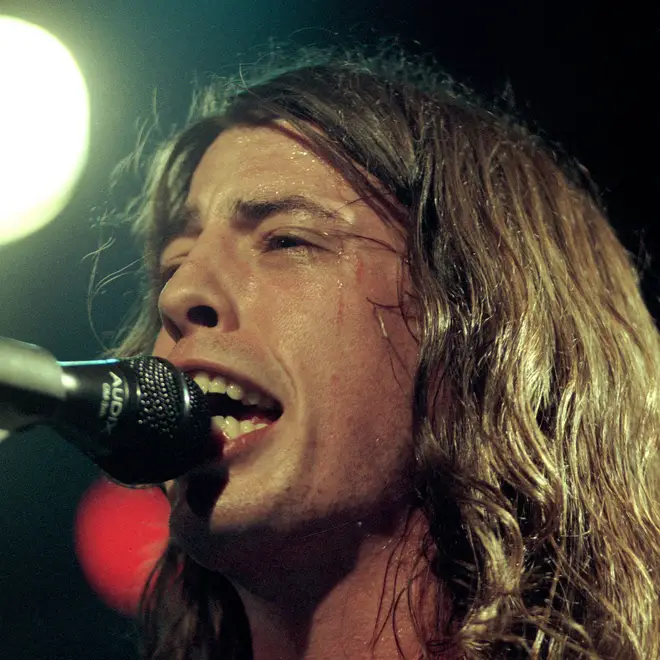
Soon, however, Grohl realised that music was part of his life and might help him handle his grief. He biographer Paul Brannigan in 2009: "I needed to punch through this place I'd been trapped in for a while and I thought this would be the best therapy for me."
The pressure from fans to keep the legacy of Nirvana pure was immense, which caused Grohl anxiety. Speaking to Mojo magazine in March 2020, he revealed: "They were like, 'How dare you be in a band again? Your music is f***ing s**t and that was a real band and you're not.'
"It's like, 'You really think that's gonna stop me? It only makes me wanna f***ing do it more, y'know. So, you can keep it coming if you want but I don't give a f**k."

Foo Fighters - Pocketwatch - 01 - Pokey The Little Puppy
Grohl had toyed with songwriting even when Nirvana was still a going concern - he recorded an album called Pocketwatch under the pseudonym Late! in 1992. For the musician, writing more of his own songs seemed like the obvious next step.
One of his compositions was titled This Is A Call, written while he was on his honeymoon in Ireland. He told Kerrang! in 2006: "It was written in my basement in Seattle just after Nirvana had finished.
"This Is A Call just seemed like a nice way to open the album, y'know, 'This is a call to all my past resignations...'
Dave soon came to a decision. "I realised that doing the thing I’d always done – go to a basement, record by myself – might restart my heart.”
He went on: "I felt like I had nothing to lose and I didn't necessarily wanna be the drummer of Nirvana for the rest of my life without Nirvana. I thought I should try something I'd never done before and I'd never stood up in front of a band and been the lead singer."

This Is a Call
Grohl quickly found he had fifteen songs - enough for a whole album - and recorded them with Barrett Jones, who owned the Laundry Room Studios in Seattle. Grohl had met Jones when he was 14 and in the band Freak Baby.
In a press release at the time of the first Foo Fighters album, Dave noted: "I wanted to see how little time it could take me to track fifteen songs, complete with overdubs and everything. I did the basic tracks in two and a half days, meaning I was literally running from instrument to instrument, using mostly first takes on everything. All vocals and rough mixes were finished on schedule: one week."
This Is A Call was done in two takes - it would be the first single to be released under the name Grohl had given his new project: Foo Fighters.
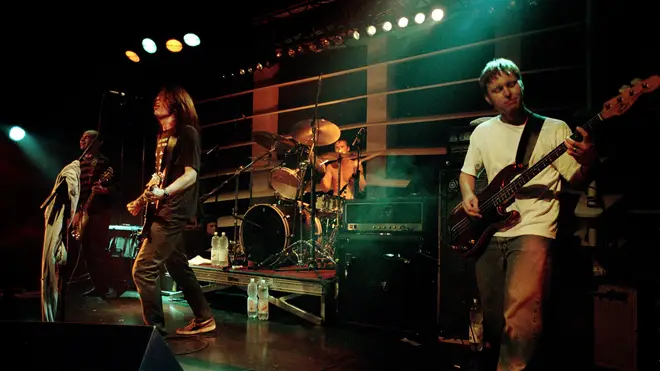
"I wanted to call it Foo Fighters because I didn't want people to know it was me," Grohl told Paul Brannigan. The musician was still concerned about the negative reception his music would receive and took inspiration from Stewart Copeland, the drummer with the band The Police, who had recorded solo material under the pseudonym Klark Kent.
"I didn’t imagine I was gonna pick up where Nirvana left off. I didn’t imagine myself to be Freddie Mercury,” he recalled. “I made 100 cassettes and handed them to friends. I called it Foo Fighters because I didn’t want people to think I was trying to be Tom Petty.”
The songs gained some support from Eddie Vedder from Pearl Jam, who played two of Grohl's songs on his radio show in January 1995. This gave Dave the confidence to continue.
This Is A Call was released as a single on 19 June 1995, while the self-titled Foo Fighters debut album followed in July. It was still, to all intents and purposes, a Dave Grohl project. But the star wanted to play his new music live and had arranged a private show in February of that year with a live band.
Despite rumours that Grohl and Krist Novoselic would be working together, the first line up of Foo Fighters featured Dave's former Nirvana bandmate Pat Smeaar on guitar, with Sunny Day Real Estate's Nate Mendel and William Goldsmith on bass and drums respectively.
Remembering that first show, Grohl told Mojo: "Honestly, still to this day I have a disconnect between Nirvana and the Foo Fighters. I don't connect the two. So I never worried about the expectation. But, still, I was f***ing terrified, in someone's loft.
"It becomes a baptism, y'know. Once you've done it, you can only go forward."
